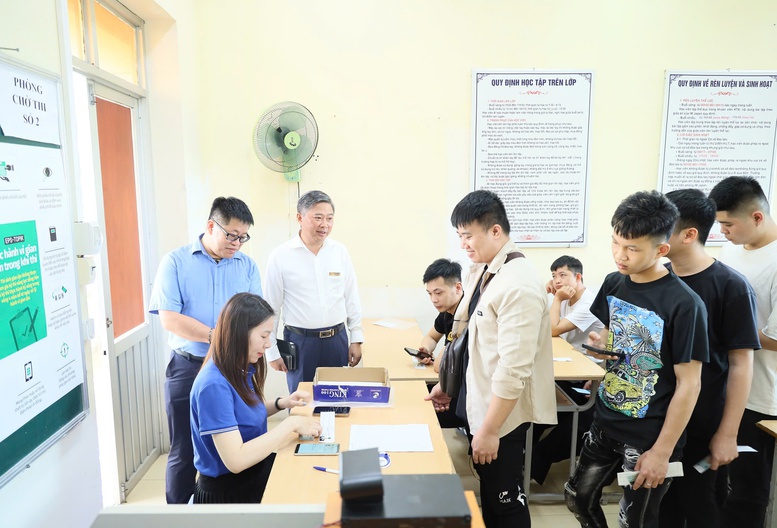
Checking workers' information before the Korean language test - Photo: VGP/TG
On the morning of May 5, in Hanoi , the Overseas Labor Center (Colab) in collaboration with the Human Resources Development Service of Korea (HRD Korea) officially opened the 2025 Korean language test for Vietnamese workers who wish to work in Korea under the Korean government's Foreign Worker Permit Program (also known as the EPS Program).
This year's exam will select 3,300 Vietnamese workers to work in Korea, of which 3,000 are for the manufacturing industry and 300 are for the agricultural industry. With a target of 3,300 people, the EPS 2025 exam is expected to bring attractive job opportunities in Korea to Vietnamese workers, while ensuring transparency and fairness in the selection process.
The Korean language test (round 1) will be held in 3 major cities: Hanoi (from May 5 to May 29, 2025), Da Nang (from May 8 to June 11, 2025) and Ho Chi Minh City (from May 6-7 and May 30-June 17, 2025). The total number of candidates registered for the test is 22,783, of which 21,435 are from the manufacturing industry and 1,438 are from agriculture.

Workers enter the Korean language proficiency test - Photo: VGP/TG
Workers must pass two rounds of exams: Round 1 : Korean Proficiency Test (EPS-TOPIK) on computer, including 40 multiple choice questions (20 reading comprehension questions and 20 listening comprehension questions) in 50 minutes. Candidates who score 110 points or more (manufacturing industry) or 80 points or more (agriculture industry) will be considered for Round 2.
Round 2 : Skill test and capacity assessment, including: physical test, interview and basic working skills. Only candidates who pass Round 1 will be allowed to participate in Round 2.
The Overseas Labor Center said that this year's exam has some new points: After finishing the Korean language test, workers who score at least the minimum score (110 points for manufacturing, 80 points or more for agriculture) must take a color vision test. Those who do not take the color vision test or are color blind will not be eligible to participate in the skills test (Round 2).
To ensure transparency and fairness, the exam applies many strict monitoring measures such as: Using devices and software to read citizen identification cards with chips to check the facial data of test takers; monitoring the exam room with an online camera system connected to the Korean side; increasing the number of Korean invigilators in the exam room; using metal detectors to detect electronic devices before workers enter the exam room...
The Overseas Labor Center emphasizes that any cheating in the exam will be strictly dealt with. Workers found cheating will be issued a violation report and will not be allowed to register for the EPS Program for a period of 4 years.
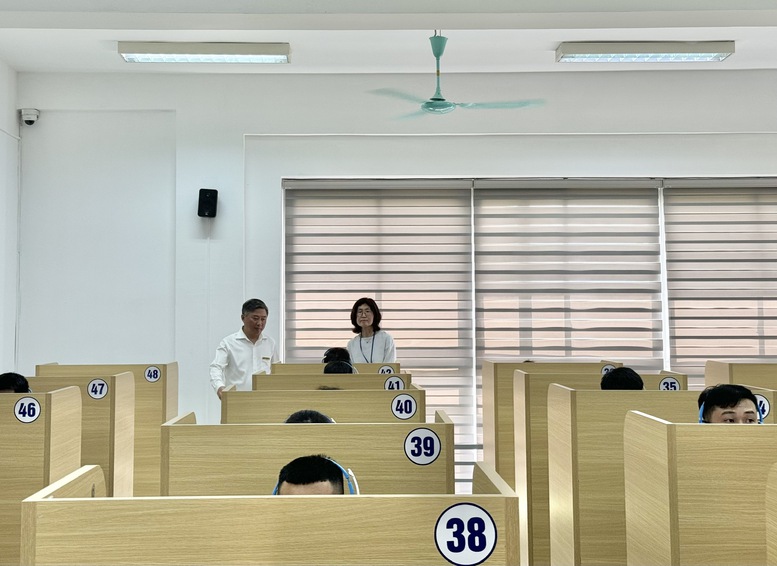
This year's exam not only maintains the multiple-choice format on computers but also strengthens strict monitoring measures such as color vision testing, facial recognition using chip-embedded ID cards and monitoring the exam room with online cameras - Photo: VGP/TG
Sending a message to workers, Mr. Dang Huy Hong, Director of the Overseas Labor Center, shared that when participating in the Program, workers need to fully and thoroughly understand the regulations, costs of participating in the Program as well as their own rights and obligations. These contents have been fully and regularly posted on the Overseas Labor Center website.
To pass the test, there is no other way than for workers to practice and learn Korean well to achieve positive results. Be wary of fraudulent acts such as "guaranteed pass" or "influence" to get to work in Korea.
If the candidate passes the exam, after completing the application, the Center will send the application to Korea. The employee's application will be hidden from personal information and will be randomly selected by Korean employers. No organization or individual can interfere with this process.
The Overseas Labor Center will send a message from the Center's switchboard system directly to the mobile phone of the worker when the Korean employer selects him/her to sign a contract; when there is a plan to leave the country and when other business arises. Not all workers who pass the selection process will be selected by the employer.
The EPS Program is a non-profit program, implemented in cooperation under the Agreement between the Ministry of Labor, Invalids and Social Affairs of Vietnam (now the Ministry of Home Affairs) and the Ministry of Employment and Labor of Korea, which started in 2004.
To participate in the Program, workers only need to pass the Korean language test and skills test; if selected by the employer, workers only have to pay the dispatch fee including (visa fee, orientation training, airfare) in Vietnamese currency equivalent to 630 USD, deposit 100 million at the Social Policy Bank (workers will receive both principal and interest after returning home on time). The procedures of the Program are carried out publicly, transparently and directly to workers.
Korea is considered a labor market with attractive income levels. Currently, the minimum wage (not including overtime and other benefits) is more than 2,000,000 won, or about 40 million VND. In Korea, workers are guaranteed the same rights as local workers (subsidies and insurance are fully covered); life and cultural customs in Korea have many similarities. The Vietnamese community in Korea is large, so workers can quickly adapt.
Since 2004, Colab has sent 141,215 workers to work in Korea under this Program, of which 2,753 were in the first 4 months of 2025. Vietnam is the leading country in the number of workers entering Korea to work under the EPS Program.
Thu Giang
Source: https://baochinhphu.vn/gan-23000-lao-dong-viet-nam-chinh-phuc-co-hoi-lam-viec-tai-han-quoc-102250505123423671.htm







![[Photo] Prime Minister Pham Minh Chinh attends the event "Digital transformation of the banking industry by 2025"](https://vphoto.vietnam.vn/thumb/1200x675/vietnam/resource/IMAGE/2025/5/29/0e34cc7261d74e26b7f87cadff763eae)


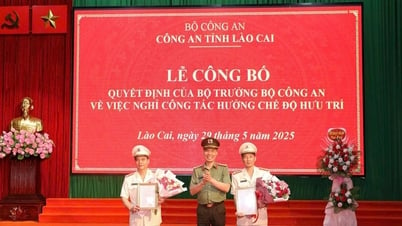





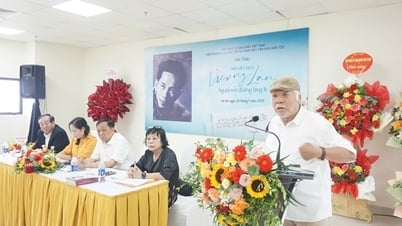





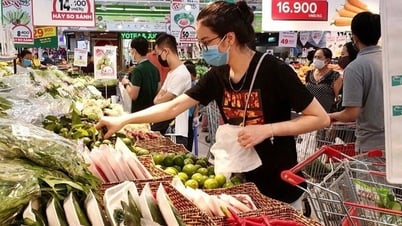
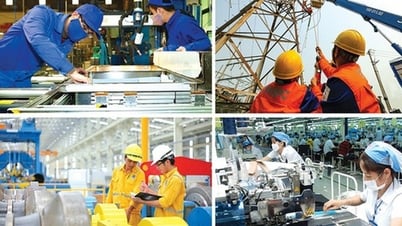

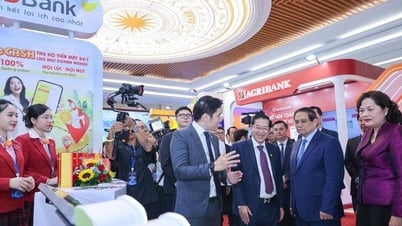
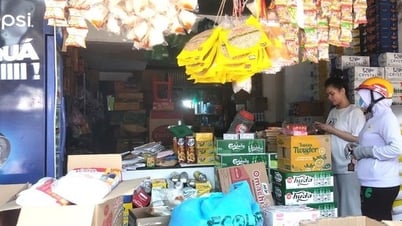

![[Photo] Prime Minister Pham Minh Chinh receives leaders of Excelerate Energy Group](https://vphoto.vietnam.vn/thumb/1200x675/vietnam/resource/IMAGE/2025/5/29/c1fbe073230443d0a5aae0bc264d07fe)






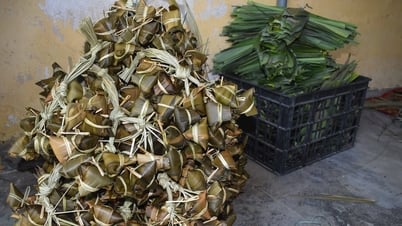











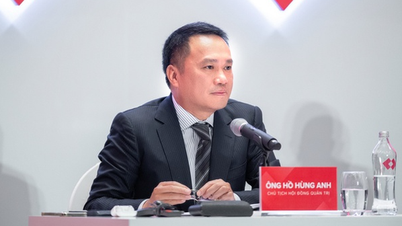





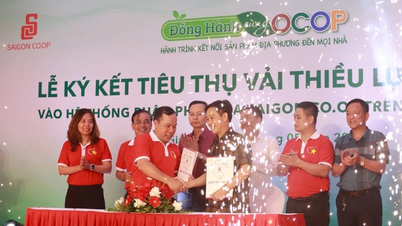

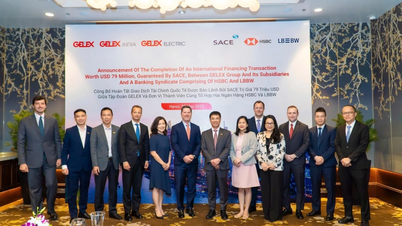

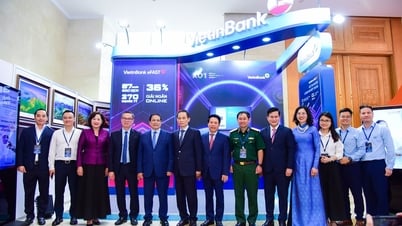






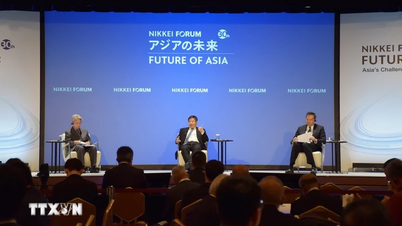


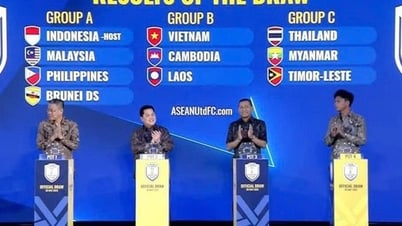


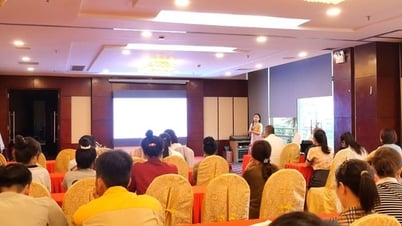
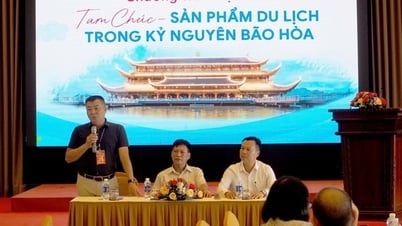

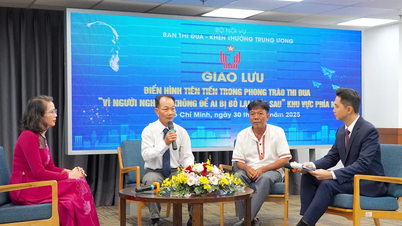



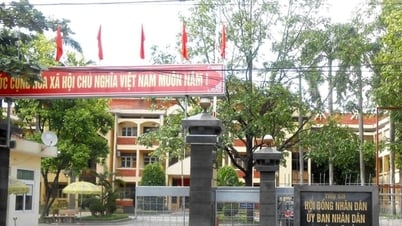

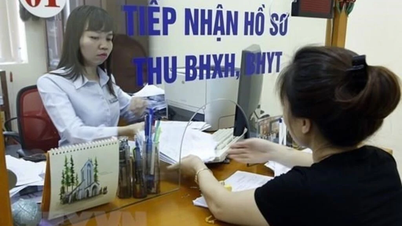




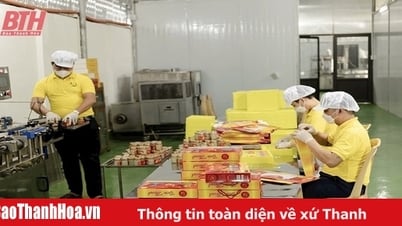

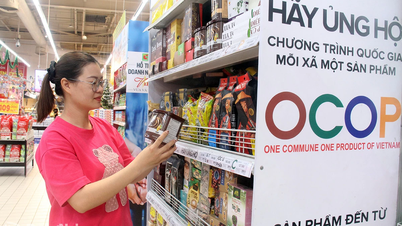
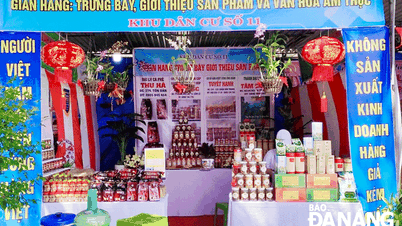

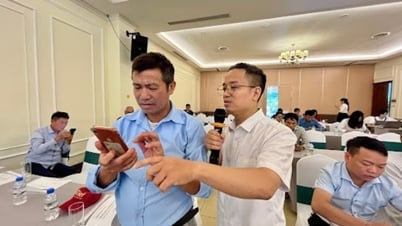


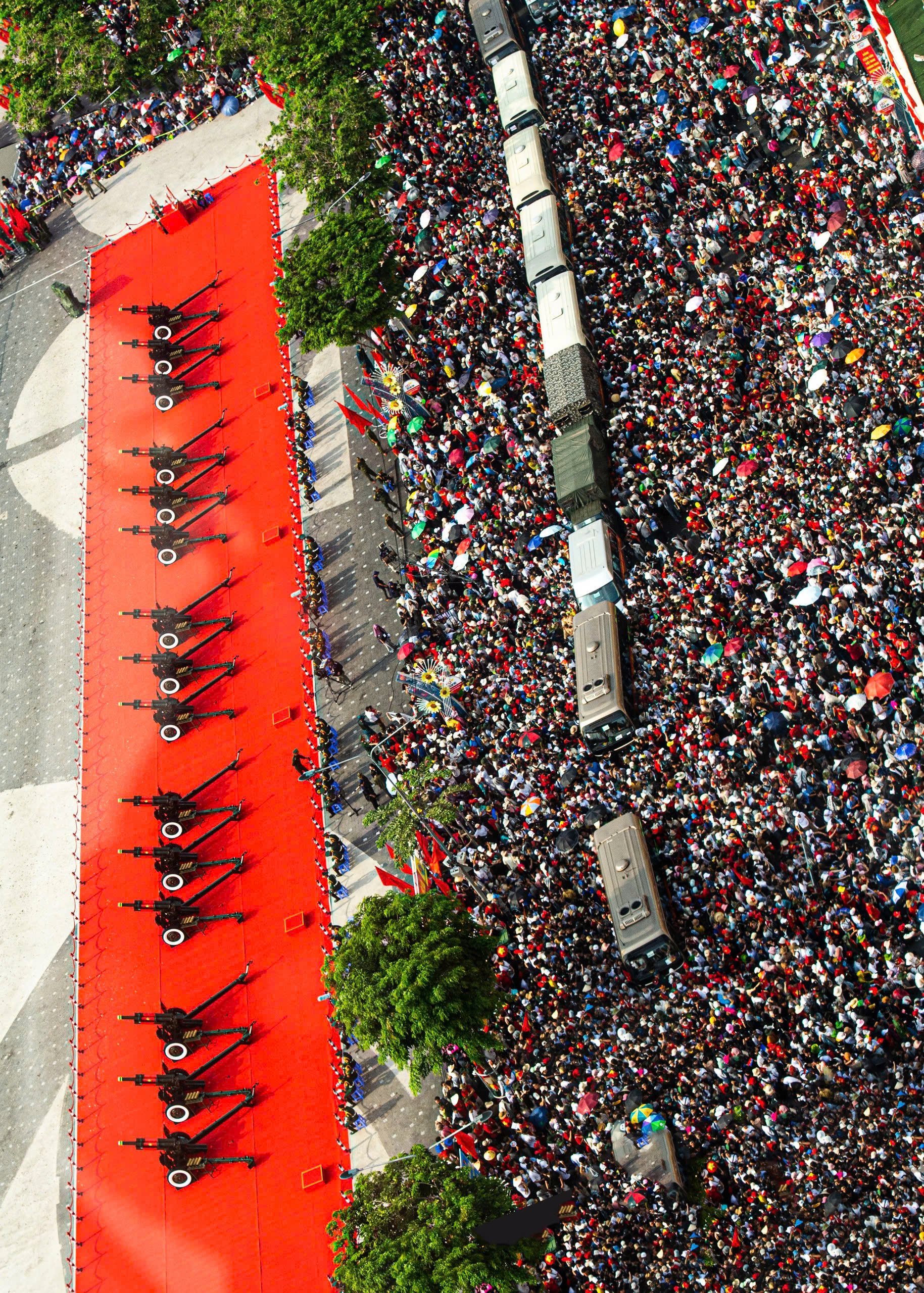



Comment (0)